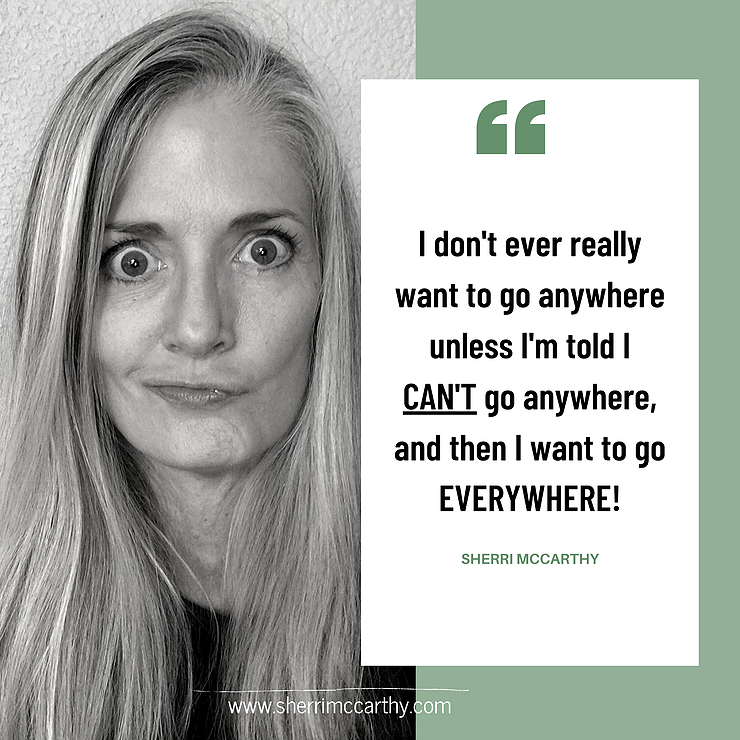
I found Sherri through her page on Instagram and I reached out to her. I am very grateful that she was willing to share her journey as an Adult Child of Alcoholics with our readers.
She is an amazing woman and I know you will find hope and comfort within this interview.
How and why did you choose your career?
My current career as mom and entrepreneur I chose because that was my deepest heart’s desire. To be able to be the mother I longed for as a child and to be able to do work that I WANTED to do rather than what I HAD to do led me to start my own business (I still have to do work I don’t want to do, though…but those small things (like invoicing) allow me to do the things I WANT to do (editing, writing, consulting).
Do you think ACOA’s ( adult children of alcoholics) should drink even though they don’t have an alcohol problem?
This is a very personal decision that each ACOA needs to make for themselves. I DO think it’s important to understand that certain activities can trigger anxiety/panic and depression—whether that is drinking alcohol or overspending. The goal, I think, is not to prohibit ourselves from things—the goal is to free ourselves to choose actions that are in our best interest.
What are your thoughts on the alcoholism addiction problem in America
The use of alcohol in America is pervasive—from commercials, television shows, movies and print media, drinking is a normalized part of our culture. Society has been formed around alcohol—it acts as the centerpiece of community establishment. From sporting events to BBQ’s to political fundraisers and business meetings, it is pervasive.
What are some of your best mindfulness skills that you have seen work on various people?
I cannot speak for others, only for myself. I have discovered staying in the present moment is key for me, and boxed breathing.
What are 3 signs of resilience you see in yourself?
I’m not sure I would call them signs, but there are certainly some traits I rely on for resilience: humor, positive thinking, and faith.
Which resources (books, blogs, etc) have you noticed have been helpful throughout your career?
As far as ACOA books go, Perfect Daughters by Robert Ackerman is probably the single most helpful book I’ve read. Tian Dayton’s The ACOA Trauma Syndrome is helpful and, although it’s not aimed at ACOA’s, Atomic Habits by James Clear is incredible.
What do you recommend for codependent people that have no money to pay for therapy or unable to drive themselves to a codependent class?
Most 12 step meetings are being held via Zoom—I would suggest that.
What would you say to a child that is having to deal with one alcoholic parent ?
Hold on. You WILL grow up one day and move away from the trauma. Find adults who can help you. For me, it was teachers, but also parents of my friends. Some I confided in, some I didn’t, but all were wonderful human beings who invested in my life.
What else would you like to share with our readers?
You matter. Your dreams matter. It’s not too late. You are not too damaged. Your past trauma is NOT a death warrant on your dreams. For whatever reason, you were chosen to be the child of parents who may not have been bad people, but they had a bad problem. You are stronger and more resilient for having gone through the hardship of living with alcoholics than those who have had no challenges to overcome. You MATTER.
What would you like to see on a blog that is for adult children of alcoholic parents ?
Links to resources, stories of overcoming.
What are your thoughts regards to diet and addiction?
Never even considered that.
What would you tell someone who is to ashamed or embarrassed to get help ?
The addiction of your parents is not a reflection of your value. You are not responsible for these actions, but, unfortunately, you are responsible to be the parent to yourself that your parents cannot be.
What are some tips you can offer to ACOA’s ( adult children of alcoholics)
Realize your parents were responsible for their own behavior, and you were not.
Realize you are responsible for your own behavior, and your parents are not.
Judge your life not by where you are in relation to others, but by where you are in relation to your younger self.
Find your peace and guard it with your life (ex: if spending an hour reading each morning brings you peace, don’t let anyone or anything get in the way of that).
Seek professional help through therapy.
Establish your OWN definition of a successful life.
Thank you Sherri
Please visit her @ https://www.sherrimccarthy.com/

Leave a Reply